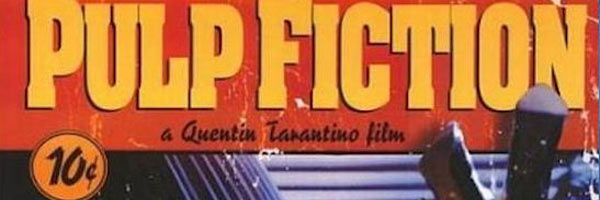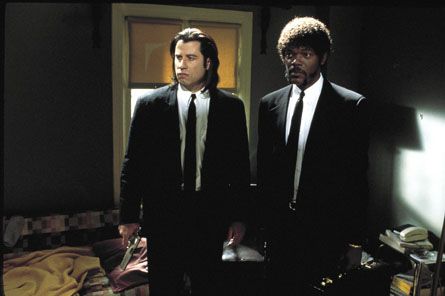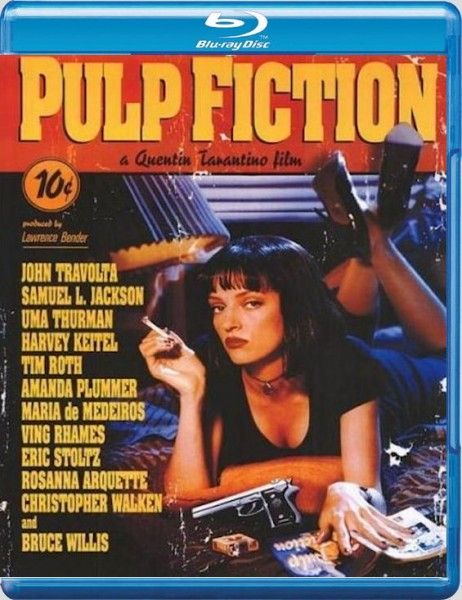What is there to say about Pulp Fiction that hasn’t been said before? Quentin Tarantino’s postmodern masterpiece arrived like a bolt of lightning in 1994 and the cinematic world hasn’t been the same since. It survived a rash of poorly conceived knock-offs, the nearly lethal overexposure of its creator, and a snubbing at the Oscars that ranks among the worst miscarriages of justice ever perpetrated by the Motion Picture Academy. Now, 17 years later, it finally arrives on Blu-ray; time has not tarnished its appeal one iota. Hit the jump for our review of Pulp Fiction on Blu-ray.
The film’s overall richness defies easy categorization, as we weave our way through three interrelated stories in the Los Angeles underworld. A non-linear narrative alternately reveals and misdirects our attention: delaying key events in ways that heighten rather than detract from the storyline. The dialogue exists seemingly for the sheer joy of it, with instantly quotable lines unfurled in the rhythm of everyday life. The conversations serve as ends unto themselves, unrestricted by plot exposition or similar necessity. Important developments arrive with little or no warning, and take the story in shocking and unexpected directions. It grants the film an unprecedented sense of verite, even as Tarantino stuffs it to the gills with self-aware in-jokes and pop-culture references.
The results create a universe unique in the annals of cinema: so vibrant and alive that the merest whiff takes our breath away. The same holds true for the assortment of hitmen, gun molls, stick-up artists and crooked boxers who inhabit it. They move in and out of the action with varying levels of importance, clustered around three general stories. The first entails a not-date between John Travolta’s Vincent Vega and his boss’s wife, played by Uma Thurman. The second covers the aftermath of a thrown boxing match that doesn’t go off as planned, placing Bruce Willis’ crafty pugilist against the crime lord he betrayed. The finale involves an accidental shooting and the scramble to get rid of the corpse, featuring both Vega and his partner Jules (Samuel L. Jackson). Each story ends with a pact or understanding between two characters; each one entails members of other storylines present as minor or supporting figures.
Beyond the raw pleasure of watching these figures go through their paces – which no film lover should miss – and the subtext which may represent postmodernism at its purest, Pulp Fiction stands as perhaps the most influential film of the last two decades. The so-called independent movement that began with Sex, Lies and Videotape reached its apex here, creating a new genre and inspiring every studio in town to concoct their own “prestige division.” The Oscars shunned it in favor of the milquetoast Forrest Gump, a film whose formulaic safety represents everything that Pulp Fiction defies. If time is indeed the only true barometer of quality, then its importance is no longer in any doubt.
The excellent Blu-ray fully justifies the film’s status. The video transfer is sterling, and the extras (six hours’ worth) thoroughly dissect it from every conceivable angle. Multiple documentaries cover the concept and development of the film, with every principal figure weighing in. The disc also includes coverage from Cannes and the Independent Spirit Awards, with Tarantino’s acceptance speech for the Palme d’Or standing out as a highlight. Running commentary and an extended clip from Siskel and Ebert analyzing the film’s impact are also included. Most of the additional features appeared in earlier DVD versions, though the two new ones – a retrospective with the cast and a new critical analysis – make the purchase well worthwhile. If you don’t have it in your collection, you need it. If you do, this new version more than justifies an upgrade.



